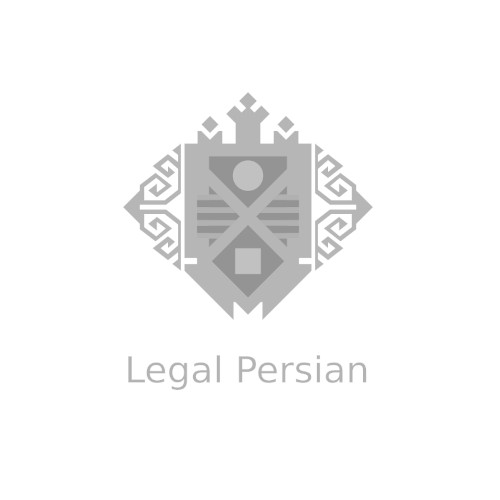A power of attorney (PoA), or in Farsi vekalatnameh, is a legal instrument which forms a Principal-Agent relationship allowing an Agent (or vakil) to perform certain legal, administrative, or even physical duties for a Principal (or movakel). An Iranian PoA by law requires the Principal’s personal presence and signature, as PoAs often allow an Agent to perform vital tasks for a Principal. Conveying this form of Principal-Agent relationship can be for compensation or for free; regardless, PoAs play a vital role in the Iranian legal and administrative atmosphere and should be regarded with outmost care.
An Agent (vakil) of a PoA can sell, buy, and/or loan assets and properties, settle disputes, as well as make all sorts of legal decisions. Therefore, PoAs should be formed from an intentional and educated decision made deliberately by the Agent and not so casually as most Iranians treat these documents. Given the breadth of duties and responsibilities that and Principal may bestow on an Agent, each PoA should be drafted by an expert who knows the potential risks entailed in the language of the document.
PoAs can be drafted either by a Notary Public Officer (or sardaftar) in Iran or in any Iranian Consulate office in foreign countries and should reflect the wishes of the Principal. Most sardaftars are lawyers who have special permits to act as legal experts along with their peers practicing as judges and attorneys in special offices called mahzar where sardaftars act as trustees to both the Judiciary branch and the community at large for all settlements, transactional deeds, and legal instruments.
Even though many PoAs can have a general template or boilerplate language, the language in the PoA, as well as what is and is not included requires the skill of an expert to protect the Principal from unintentional risks of giving too much power away. If the PoA is written by a sardaftar, then they are drafted, legalized and stamped. You may see a list of pre-drafted PoAs on the Iranian consulate websites, from which you can choose to sign and legalize as a DIY project. However, like most other DIY jobs, this result is not guaranteed; and many people make the dire mistake of signing PoAs without fully grasping the meaning of the duties being given to the Agent, resulting in sometimes irrevocable and almost always costly outcomes of an uninformed action.
In order to make sure what you are signing and legalizing as a Power of Attorney, please consider:
- Hiring Experts. Experts can provide their opinions on how the extent of each PoA varies, and what measures must be considered before drafting a PoA. All PoAs drafted in the U.S., or any other foreign country, that are legalized by Iranian Consulate Offices will have full effect in Iran and, as a result, must be fully understood.
- Refraining from drafting and signing comprehensive PoAs to individuals in Iran—unless that is your intention. We have seen many cases where individuals, relatives, and attorneys in Iran, in order to make their own lives easier (and not so much yours) will ask you to give them a comprehensive PoA (or vekalatnameh jame) to sell and buy all your assets in Iran when you only needed a PoA for someone to rent an apartment.
- Being aware of boilerplate and template PoAs. For the same reasons mentioned above, read and understand every word of PoAs you intend to legalize before submitting them for legalization. Sometimes, you may unintentionally bestow too much power to the Agent; and by the time you realize this, it is too late.
- Adding a time limit to your PoA. One feature that can protect you as the Principal in a PoA is a time limit. It is a good practice to include time limits for your Agent to effectively represent you.
- Preventing the re-delegation of duties from the Agent to other Agents. Generally, Agents in most PoAs can have the ability to delegate their bestowed powers to other individuals. You can prevent them from having the option of re-delegating their powers to others with the appropriate language in your PoA, so that the original Agents remain solely responsible for their actions.
- Making sure all PoAs are revocable and that you have the right to cancel them when you need to do so. An irrevocable PoA (vekalatnameh bela azl) to sell can be so detrimental to your interests that even after noticing a wrongdoing by your Agent, cancelling the PoA can only be done in a court proceeding—which takes time and extra expense—not to mention complexities of managing court proceedings in a foreign country.
- Consult with an expert before drafting your PoA. Always talk to us regarding your PoAs and the extent to which you would like to limit the powers you. Legal Persian will always be on your side! Mr. Mirzaei has extensive experience in all matters regarding inheritance, transfer of properties, as well as administrative law in Iran. After running one of Tehran’s top Mahzar’s, he founded Legal Persian in the U.S. to assist Iranians living abroad effectively manage their affairs in Iran. He has drafted and legalized over 100,000 PoAs and can help you navigate through the complexities of the Iranian administrative and legal system.




